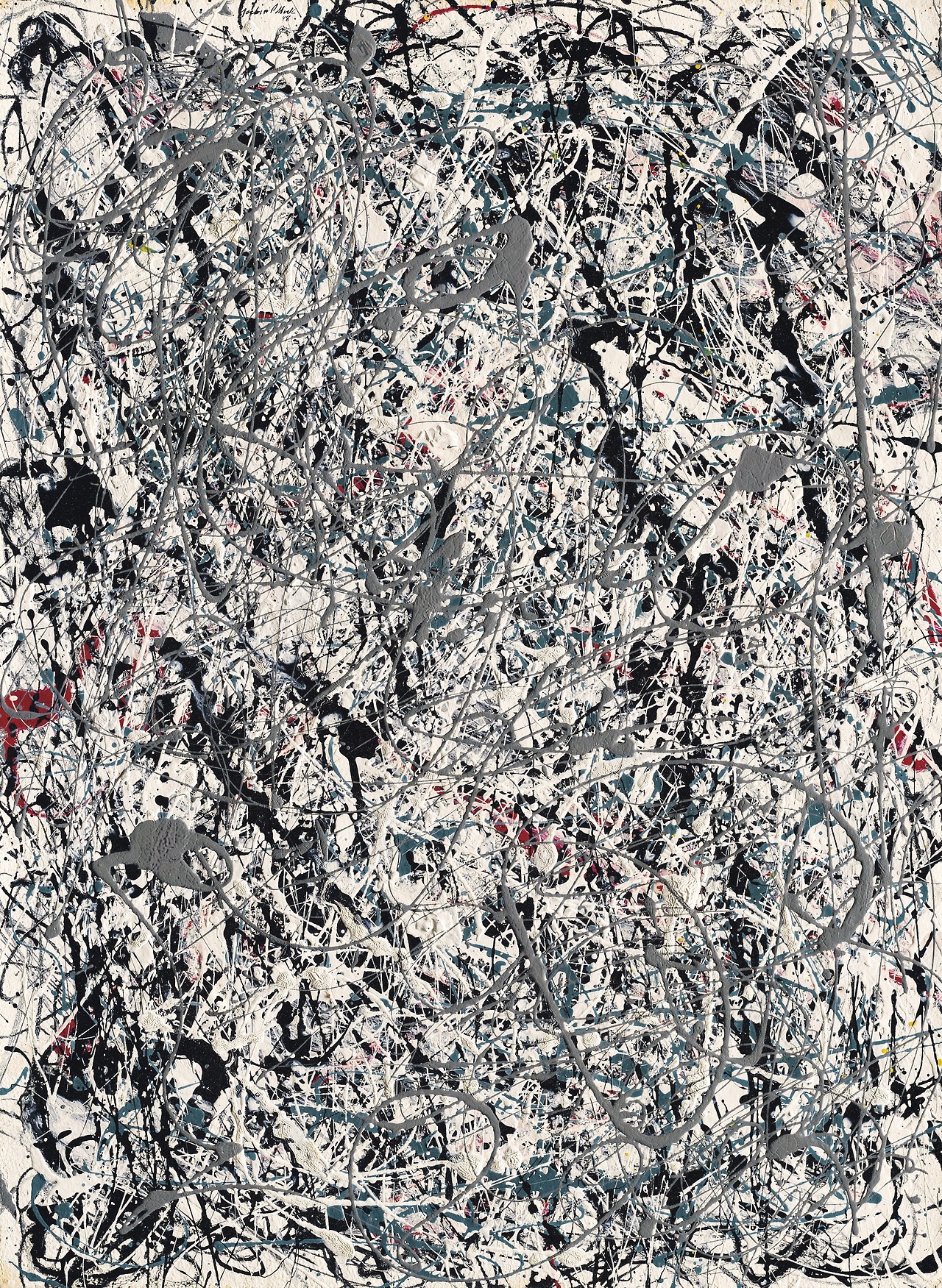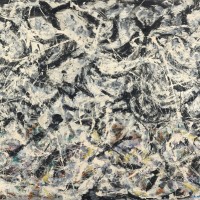| Painting Name | Number 19 1948 |
| Painter Name | Jackson Pollock |
| Completion Date | 1948 |
| Place of Creation | USA |
| Size | 30 7/8 x 22 7/8 in. (78.4 x 58.1 cm.) |
| Technique | Enamel, Oil |
| Material | Canvas |
At closer look, Jackson Pollock’s paintings seems to be more of an impasto art-work with its thick colors almost protruding out of the painting and generating shadows near those thick color-lines. It creates a fine surface which becomes a part of the art.
Number 19, 1948 is similar painting with thick color implementation. At some places, you can almost see thick droplets. That’s how they are called the Drip paintings of Jackson Pollock.
Number 19, 1948 Analysis
The Painting is no exception of the drip painting technique. There are maximum 6 colors apparent: ivorish- white as the main background. Over that are the black, grey and bluish green colors. Minorly used colors are red and very tiny specks of yellow at some places which could get almost unnoticed to a normal viewer.
From a certain distance, the most impressive ones are grey, black and white. These colors makes the whole painting almost a black and white as grey could be called as another shade of black.Though, the ‘colors’ captured behind that monochrome net are adding some crispy feeling. Though, seemingly unarranged, Jackson Pollock had a good sense of composing the disarranged lines in beautiful way. This rare sense has stopped many people to become the next Pollock of the art which is “seemingly” very easy to do as you are doing nothing but dropping colors on the laid canvas and you also don’t need any academic education.
Dropping colors on the canvas is maybe easy, but having that sense of composing the dripped colors in beautiful ways is rare.
Anyway, the painting itself is another masterpiece for Jackson’s drip paintings. That’s why, it’s costly to own too.
$58,363,750
In the recent art auction held by Christies in 2013, the painting was sold for$58,363,750. That’s less than half than Jackson Pollock’s most expensive painting. But, it is still very high and shows investors high interest in Jackson Pollock’s art-works years after his death.





personally Jackson Pollock is one of the only abstract expressionists I really don’t like, there’s just something about it that bores me.